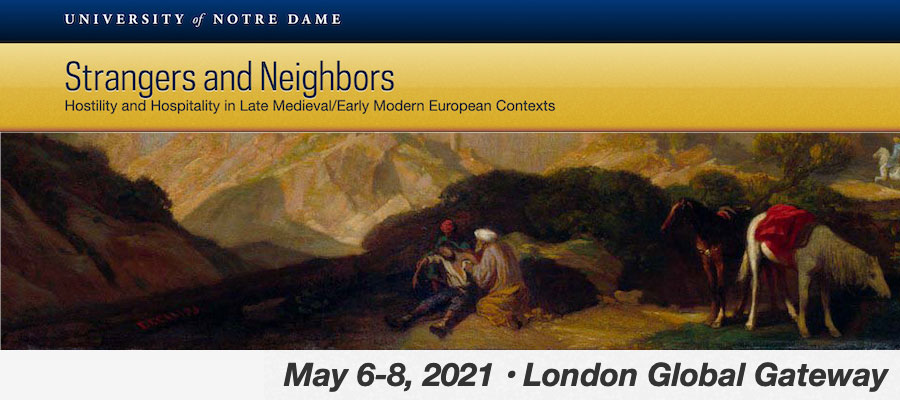Is the foreigner friend or foe? The rhetoric around immigration has become ever more heated as globalization, climate change, pandemics, civil wars and proxy wars, the ease of travel, and cross-cultural exchange and encounter have rapidly increased. In the transition from the medieval to the early modern period, a similar intensity in such activity within Europe and outside its borders dominated everything from literature to politics to religion. A nascent xenophobia makes itself known in disputes between different peoples, of course, but also between members of the same culture. In France, for example, Protestants were often considered a foreign element to be excised.
On the other hand, foreigners often fascinated the natives or served as a political tool of comparison in their attempts to affirm or purify their own culture. Either way, representations of and interactions with the foreigner could reveal ambiguity with respect to the newcomer but also within one’s own culture. The stranger could quickly become one’s neighbor, if the conditions were right. This complicates medieval and early modern xenophobia, as fears can be assuaged if certain advantages present themselves.
This interdisciplinary conference, with a special focus on the domains of literature, religion, theology, politics, and history and their intersections, seeks to explore the reality of xenophobia and what role it played in medieval and early modern societies. Do outsiders offer an opportunity for charity or even enlightenment? Are they insidious agents of a foreign power or reinforcements called in to strengthen a purportedly supranational religious identity? Are they rapacious barbarians or civilized partners of trade? This is more than a question of the “Other”; it is about exploring the ambiguities of migration and cross-cultural exchange in the culture and in daily life in a period of religious, political, and cultural upheaval within Europe and beyond.
Paper topics will be especially welcome in the following areas:
- Immigration inside and outside Europe
- Protestant and Catholic migrations
- The virtue of charity
- Religion and poverty
- Duty and practice of hospitality
- Literary representations of the foreigner
- Travel narratives
- Rhetoric, polemic, and satire
- Medieval and early modern theology
- Historiography of the stranger
- International politics and diplomacy
- Spread of disease and treating the sick
All lodging expenses for paper presenters will be reimbursed. Some meals provided.
